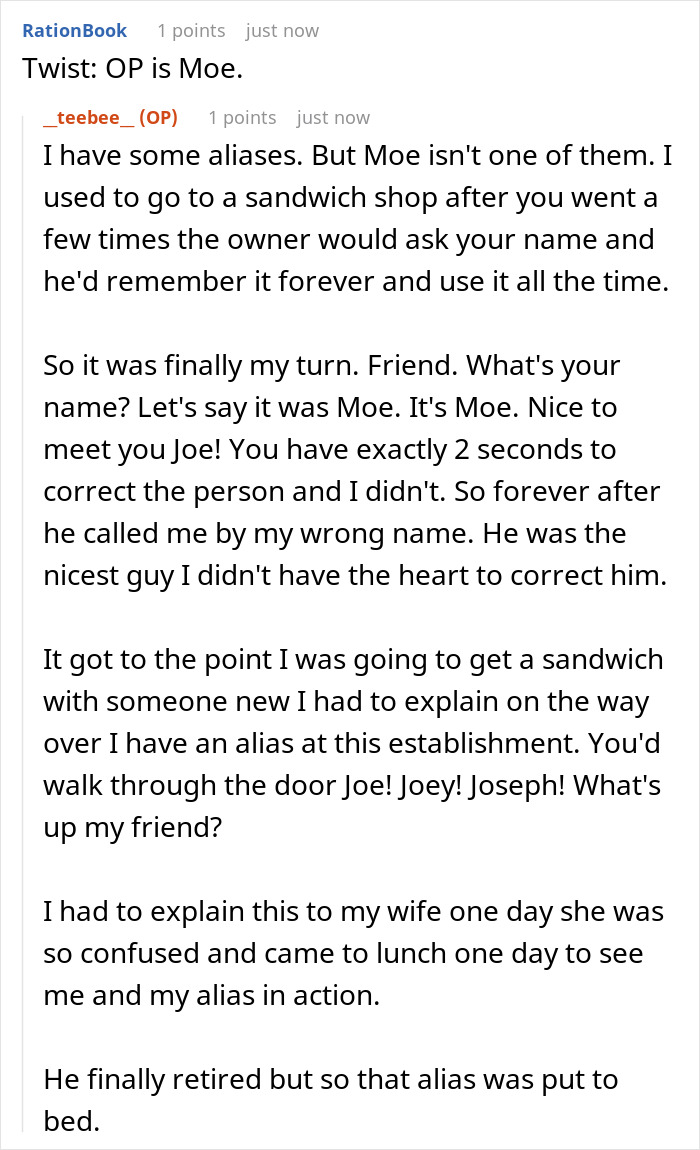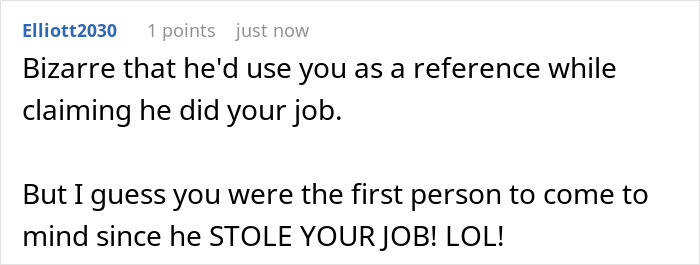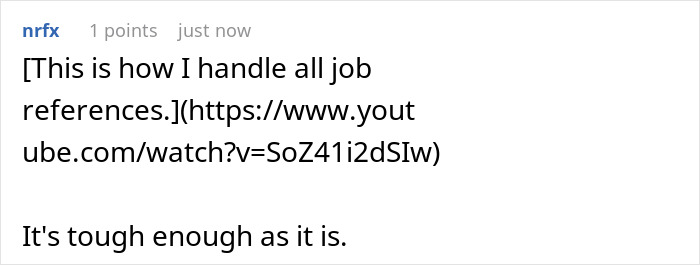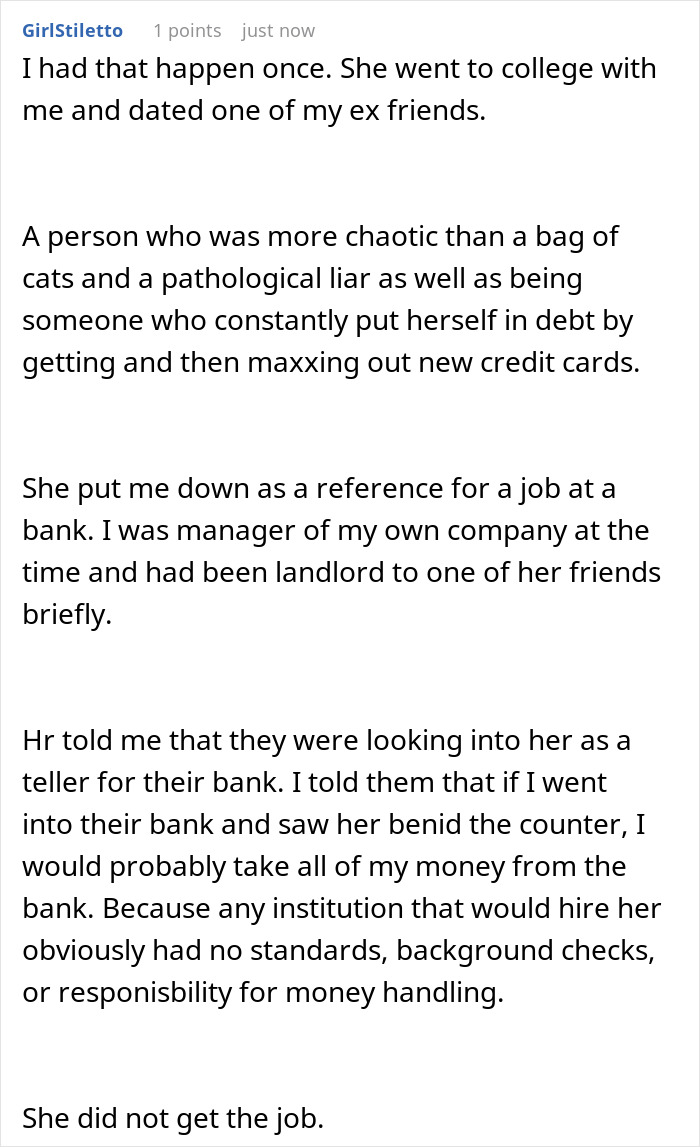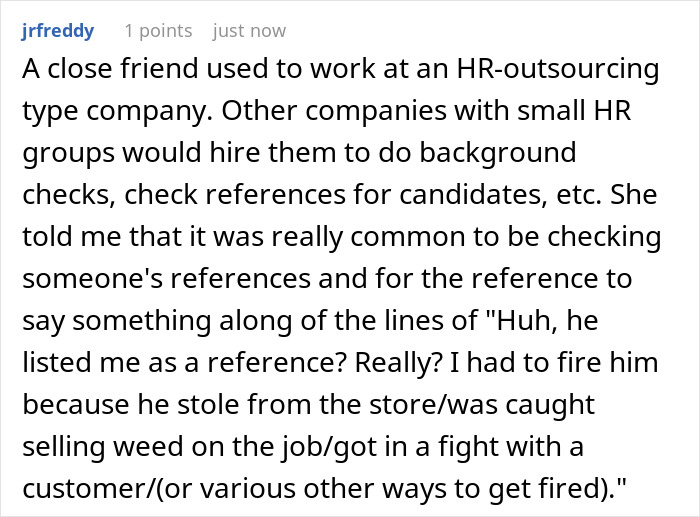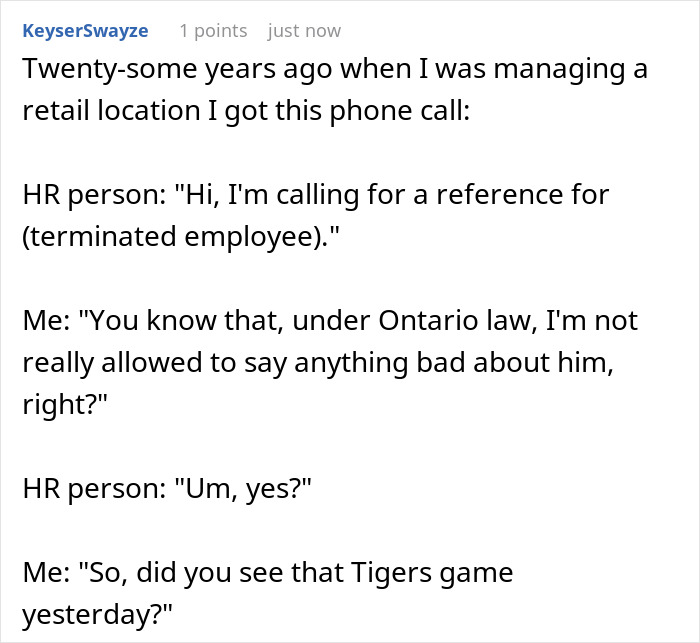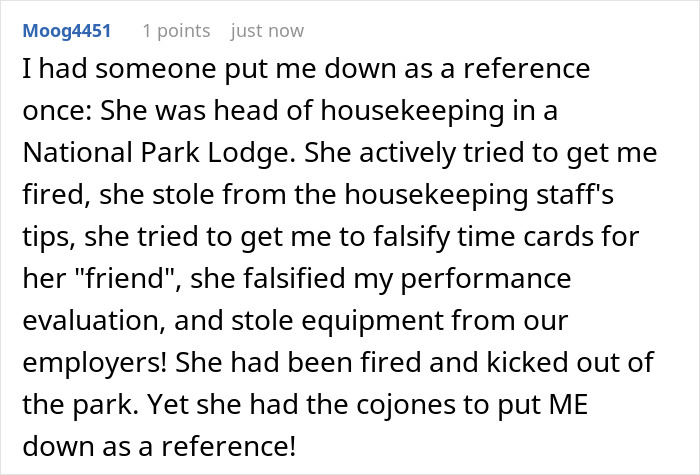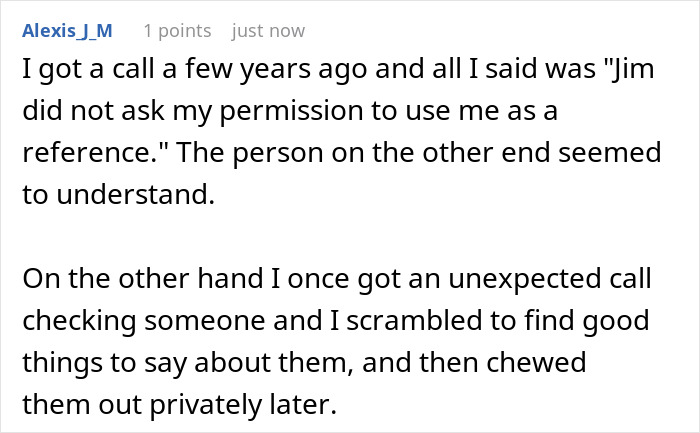Job search is a draining thing to go through for everyone. From resumes, cover letters, and interviews, you always have to present the best version of yourself. But what if you don’t feel like you’re the version that would fit the job you want so much? Well, some go to the extent of falsifying their experiences and/or making questionable choices when it comes to listing their references. Only, is it the best option in this scenario? Today’s story proves that it is definitely not, as the person who did both these things soon regretted it when the job opportunity got away from him.
More info: Reddit
What to say when your ex-coworker you barely knew put you down as a reference in their resume?

Image credits: Ketut Subiyanto (not the actual photo)
Reddit user shared a story of how they were called as a reference for an ex-coworker who they barely worked with
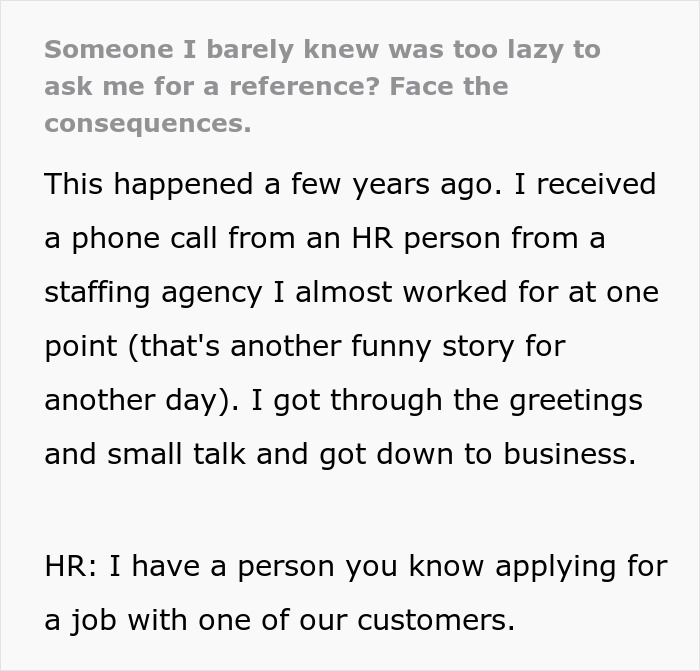
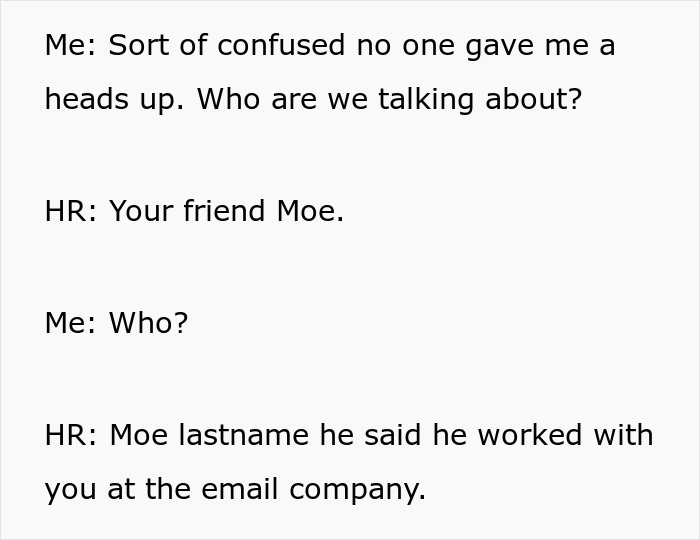

Image credits: Nicola Barts (not the actual photo)
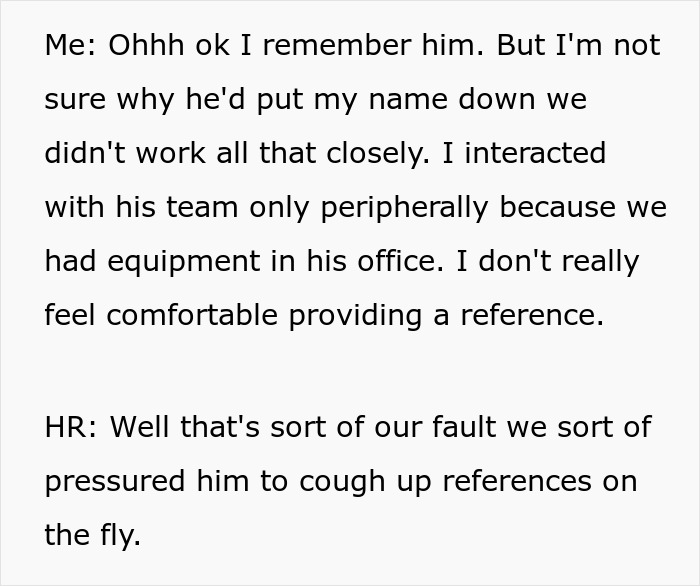
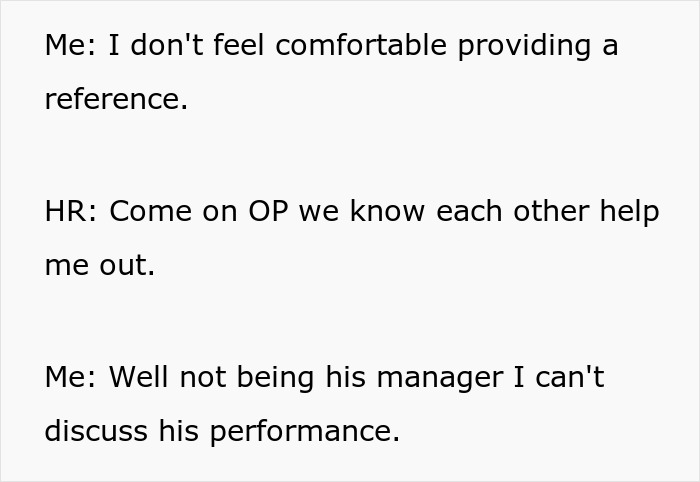
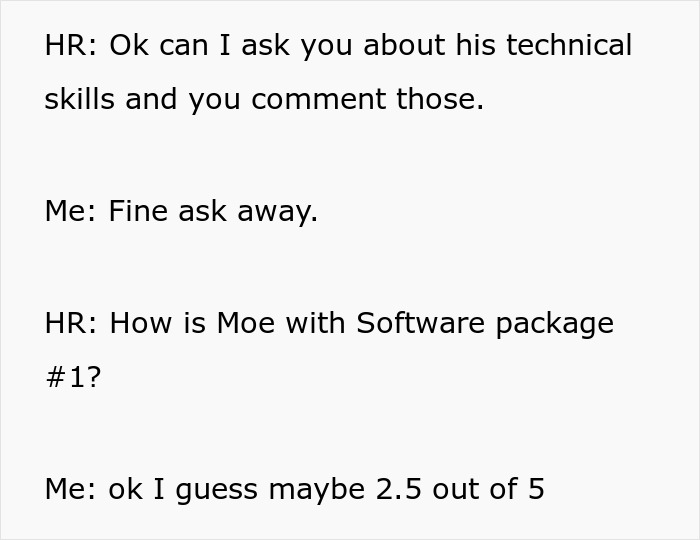

Image credits: LinkedIn Sales Navigator (not the actual photo)
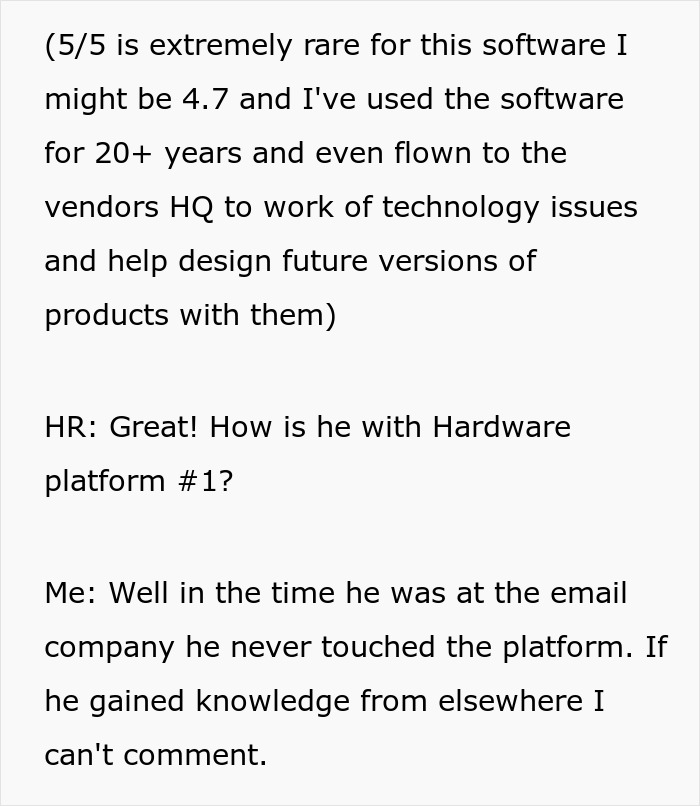
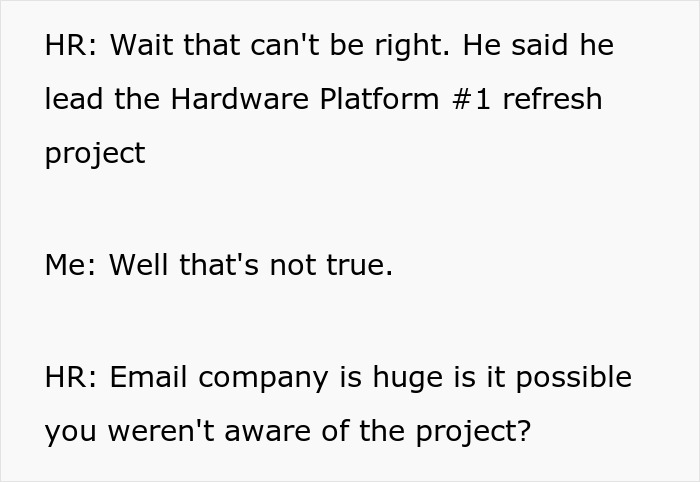
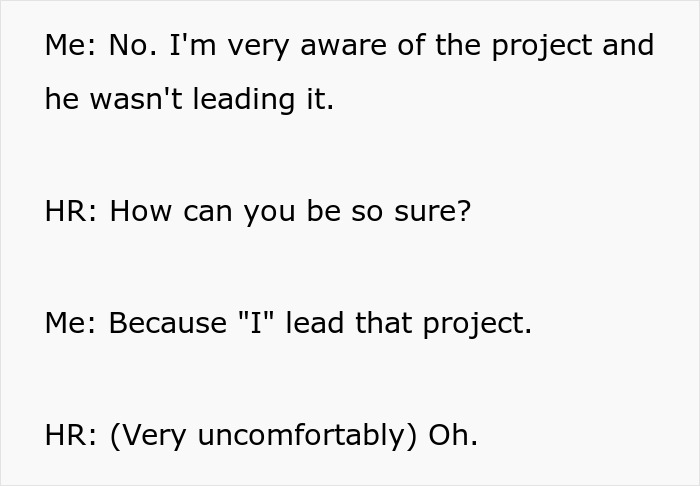
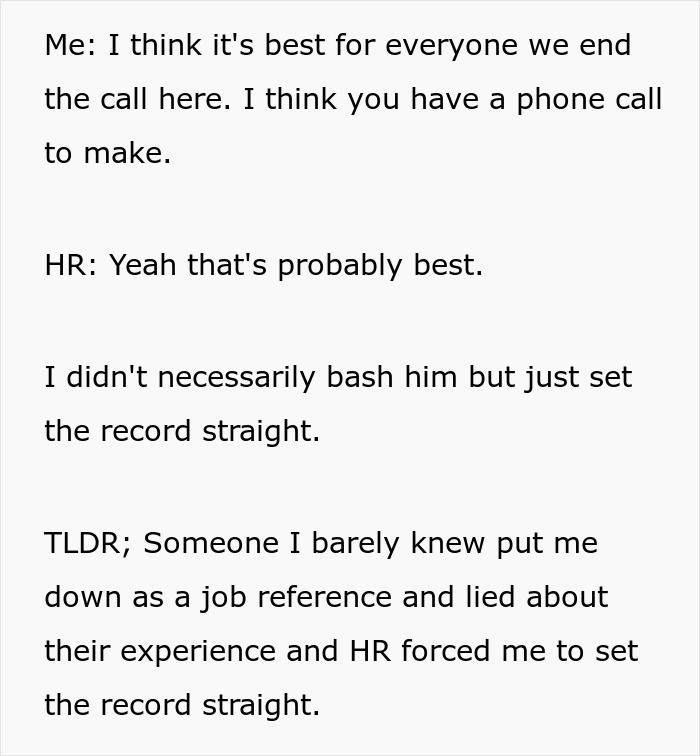
Image credits: u/__teebee__
The person told HR everything they remembered about said ex-coworker, which ended up with a clear implication that he wouldn’t get the job
The story we’re talking about today happened a few years back. The OP received a phone call from some company’s staffing agency, who asked them to provide a reference for a person they knew, their friend Moe.
Apparently, the OP didn’t have a friend named Moe. But they had an ex-coworker Moe who put them as a reference. That felt weird to the post’s author because they didn’t work with Moe closely, so they didn’t feel comfortable providing a reference.
So, the company asked him to discuss Moe’s technical skills instead of performance. Here, the OP spilled the beans. Everything from Moe’s capabilities of using certain programs to his lying about leading a project, which in reality was led by the post’s author.
In the end, it was pretty clear Moe wasn’t going to get the position he applied for. And it’s all because he chose a reference person who wasn’t on board lying about his CV.
Speaking of falsifying CVs and listing people you barely know, Bored Panda has reached out to career strategist Linda Raynier to get a professional’s perspective on such topics. Check out her Instagram, LinkedIn, and website!
Linda revealed that in her career, she hasn’t encountered that many people who are brave enough to fake their education or work experience, which she is quite happy about.
The career strategist highly recommends not taking the route of lying on a CV: “It will be discovered at some point and will more likely than not be a career killer. You have what it takes to get the job you want. It’s all about how you articulate your value and doing what you need to elevate yourself to match the career you deserve externally.” For those who struggle with articulating their value, Linda has workshops for resume crafting and interview mastery!
And for those who do that, in Linda’s opinion, it’s likely due to them believing that their qualifications aren’t enough to get the job: “They don’t feel they can compete with other job applicants, and as a result, might be tempted to falsify information.”
Linda mentioned that if the company finds out that the CV is falsified before hiring, the consequence is probably going to be losing the opportunity and being blacklisted from ever applying there again. As an example, she shared a case from her experience — a job candidate, who included a university’s name he supposedly graduated from. Turns out, he only attended a semester or two and dropped out. Still, he didn’t shy away from including it in his education. When the hiring manager, who was about to offer a job to him, found out, he quickly pulled the offer.

Image credits: Tima Miroshnichenko (not the actual photo)
And if the company finds inaccuracies in the CV after hiring, the consequences can be way more severe: “Not only will you be fired, but you can kiss your prospects of finding another job in that same industry goodbye. You’d be surprised at how common it is for people in the same industry to know each other… and people talk!”
Even putting your own references that would talk you up might not help in such a situation: “Companies don’t always only call the references that you’ve indicated… If they know someone at that company from their own personal/professional network, they will more than likely reach out to him/her to find the low down on you as part of their own due diligence. That’s where you can get in trouble, even if your own references say positive things.”
Speaking of references, Linda lists several reasons why it’s not beneficial to put a person you barely know or haven’t worked closely with as a reference (like the person from the Reddit story did):
- “They won’t be able to speak to the depth of your experience, as they likely haven’t witnessed it first hand. So they won’t be able to persuade the employer as to how capable you are or give detailed examples. This will cause employers to potentially question your abilities and whether you’re actually qualified for the position.”
- “They may appear unprofessional or lack credibility, as they will have very limited/vague things to tell the hiring manager about you, making you appear unprofessional.”
- “The fact that they don’t know you too well will come up during the reference call, and you’ll appear unprofessional [by] providing a reference who you haven’t worked closely with, impeding your chances of getting a job offer.”
If you’re confused about who you should put as a reference on your CV, Linda has an answer to it: “References, first and foremost, should be a direct manager whom you’ve previously worked with. These are who future employers generally request from you to list as references. If, for whatever reason, you can’t list a direct manager, then someone who was a supervisor or any position that was above yours and who worked with you to some reasonable degree. They must have relevant examples to support your experience and skill set.”
If you don’t have any work experience, according to the career strategist, you can leverage your contacts from any volunteer or extra-curricular experiences or even get references from professors or teachers from your education institution.
So, we can probably say that we can only wish that since Moe didn’t get the job, he won’t lie on his resume or put down an improper reference again. It can only get him in trouble (getting blacklisted from the whole industry doesn’t sound nice, right?), while for the companies or hiring people, he will merely be an anecdote who won’t ever be hired by them.
Plenty of similar anecdotes of people listing someone they barely know as a reference were shared in the comments under the post. How bold people are to just assume that someone who barely remembers them will put in a good word for them! And apparently, these people aren’t as rare as we would have thought. Otherwise, people in the comments wouldn’t have had so many entertaining stories of their own.
People in the comments shared various similar situations in which they were put as a reference for someone they didn’t know that much
